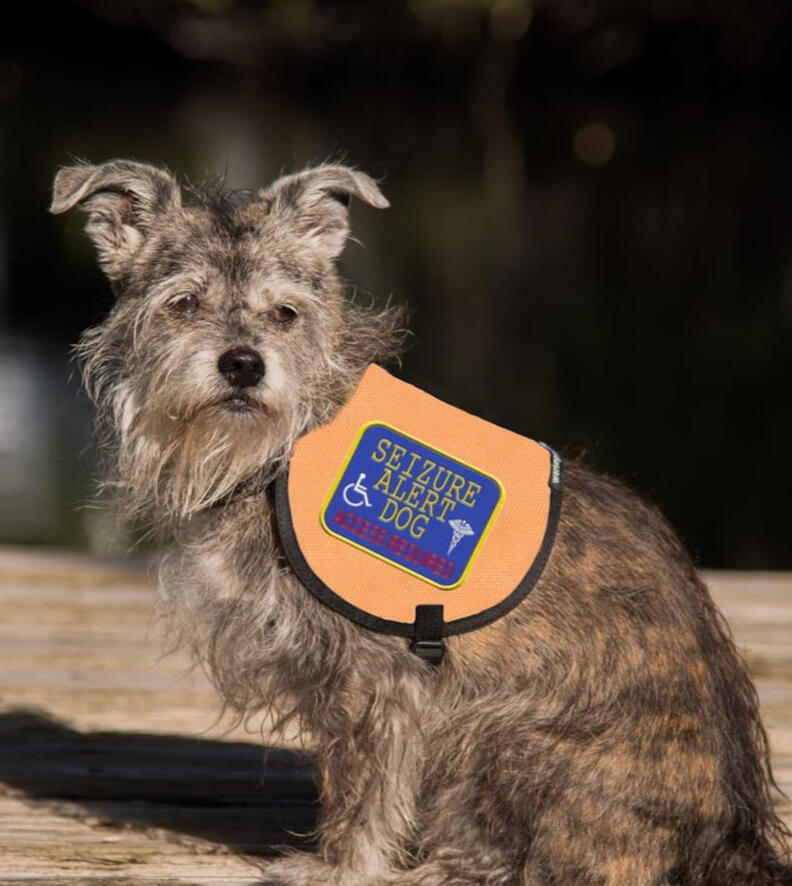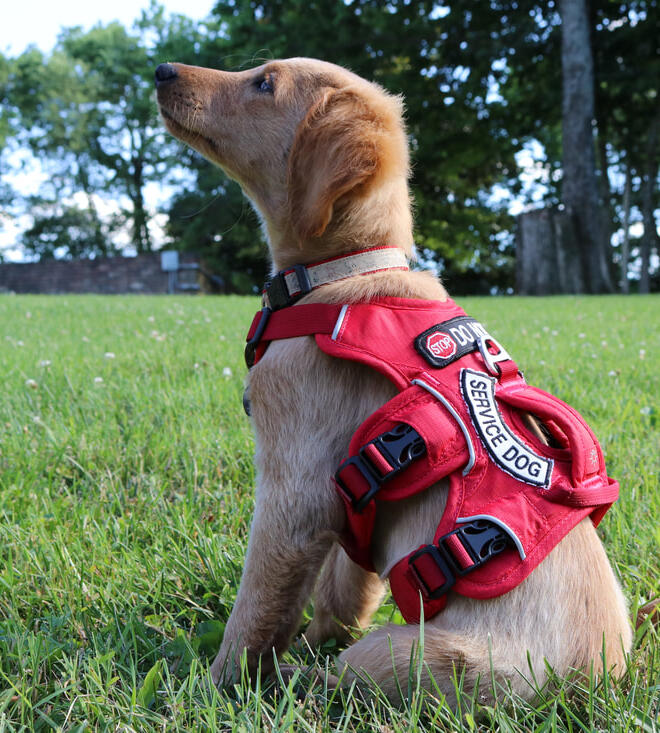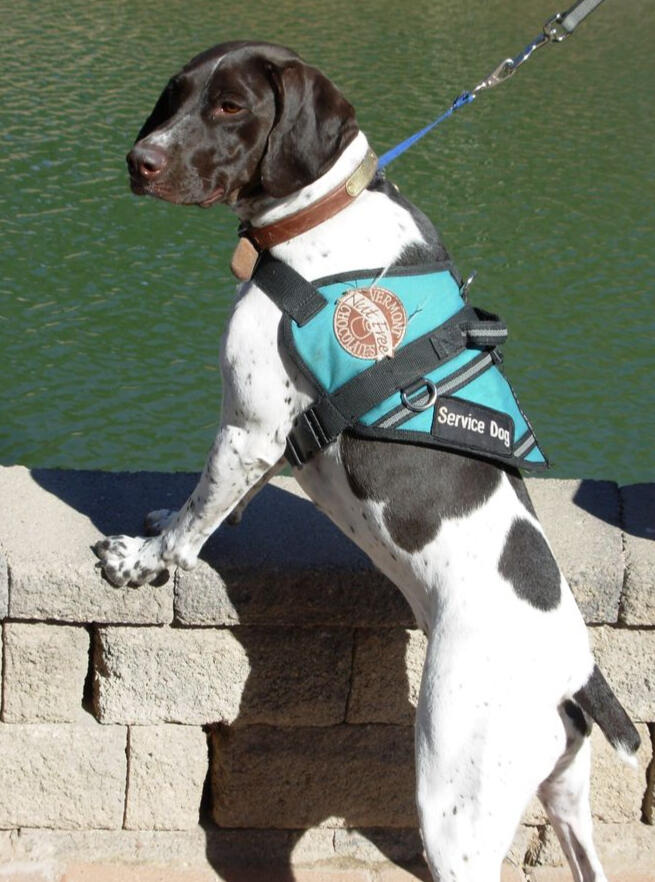Terracotta Canine Trainers Academy
TCTA is led by Karen Walker, a seasoned expert with 24 years of experience, our academy is dedicated to enhancing the lives of individuals with disabilities through the power of trained service dogs. Karen's deep understanding of the unique needs of those with medical conditions has shaped our training methods and our commitment to excellence.
Trainings we offer

Seizure Alert and Response Dog Training
Course Objective: Equip dogs with the skills to detect and respond to an oncoming seizure in their handler.Course Curriculum:
Understanding Epilepsy and Seizures: Basic education on different types of seizures, their signs, and the potential triggers.
Pre-Seizure Signs Detection: Training dogs to detect subtle changes in behavior or scent that may indicate an impending seizure.
Alert Techniques: Teaching dogs how to alert their handler safely and calmly to give them time to prepare or lie down.
Post-Seizure Assistance: Training dogs to stay with their handler during a seizure, protect them from injury, and how to activate an emergency response system or retrieve a phone.
Continuous Monitoring: Encouraging ongoing training and adjustments based on the evolving needs of the handler and the effectiveness of the dog’s alerts.

Diabetic Alert Dog (DAD) Training
Course Objective: Train dogs to detect and alert to hypoglycemic (low blood sugar) and hyperglycemic (high blood sugar) episodes in individuals with diabetes.Course Curriculum:
Introduction to Diabetes: Understanding type 1 and type 2 diabetes, symptoms of blood sugar fluctuations, and how dogs can detect these changes.
Scent Training: Techniques for training dogs to recognize the specific scent changes associated with hypoglycemic and hyperglycemic episodes.
Alert Methods: Training dogs on how to alert their handler to a detected scent change through specific behaviors such as nudging, pawing, or bringing a specific object to the handler.
Response and Escalation: Teaching handlers how to respond to an alert and train dogs on what to do if the initial alert is ignored (e.g., escalating the alert or seeking help).
Ongoing Management and Refinement: Methods for maintaining and enhancing the dog’s sensitivity to scent changes over time.

Allergen Detection Dog Training
Course Objective: Train dogs to detect and alert to the presence of specific allergens to prevent exposure for individuals with severe allergies.Course Curriculum:
Basics of Allergens: Educating handlers on common allergens (such as peanuts, tree nuts, gluten, etc.), cross-contamination, and symptoms of allergic reactions.
Scent Discrimination Training: Techniques for training dogs to differentiate between safe and unsafe scents related to specific allergens.
Alerting and Avoidance: Training dogs on how to communicate the presence of an allergen to their handler and how to lead their handler away from the source.
Emergency Procedures: Teaching handlers how to respond to an alert and train dogs to fetch medication like epinephrine auto-injectors or to press an emergency call button.
Adaptation to Environments: Ensuring dogs can detect allergens in different settings such as schools, homes, and restaurants, adapting their training to various social contexts and distractions.
The courses we offer are specifically designed to train dogs in assisting with disabilities in compliance with the Americans with Disabilities Act (ADA). Our programs are meticulously crafted to meet the standards outlined in Title II (State and Local Government Services) and Title III (Public Accommodations and Commercial Facilities), as amended on September 15th, 2010, in the Federal Register.
Contact for more information: [email protected]
All rights reserved - Terracotta Canine Training Academy - 2019